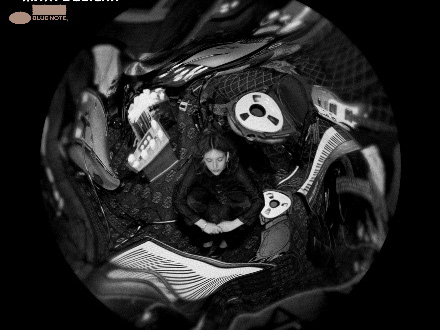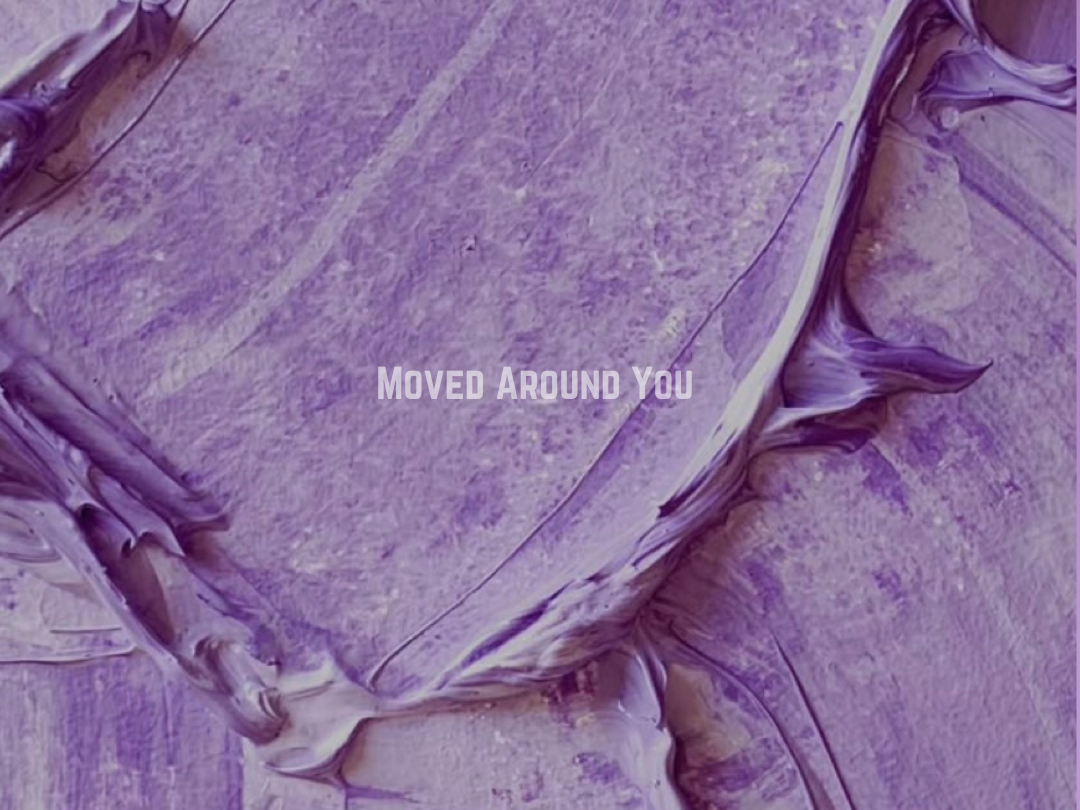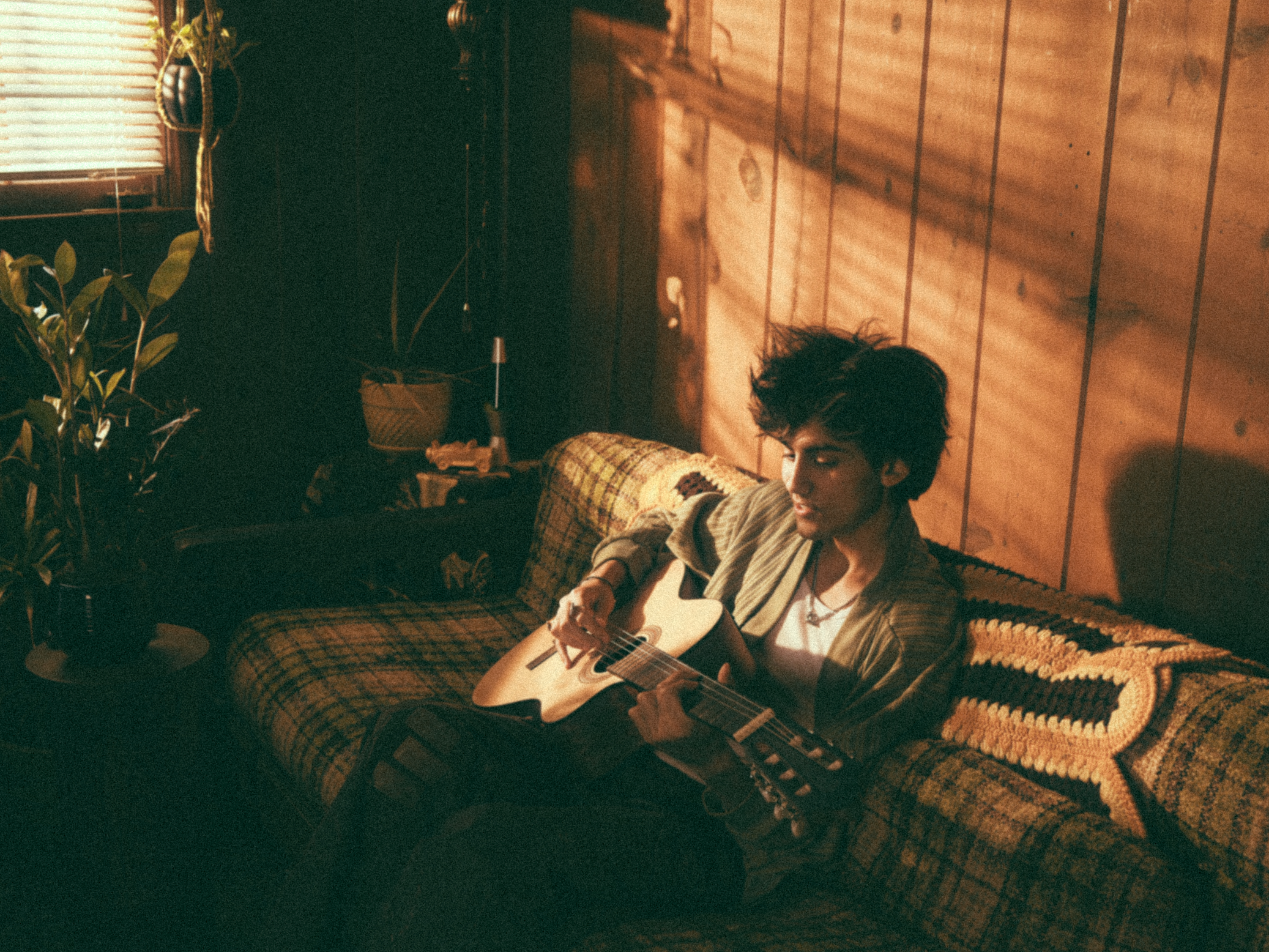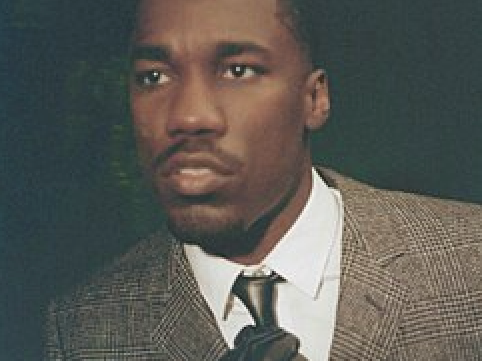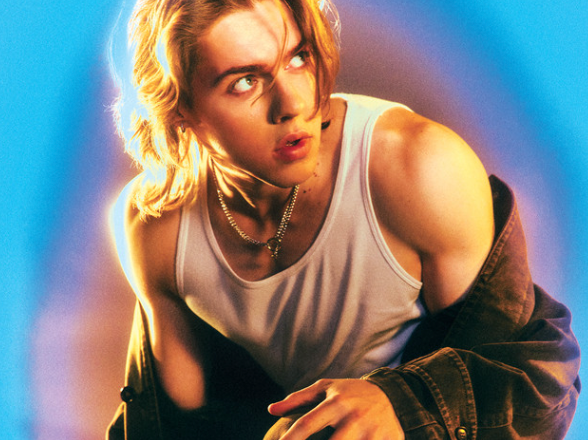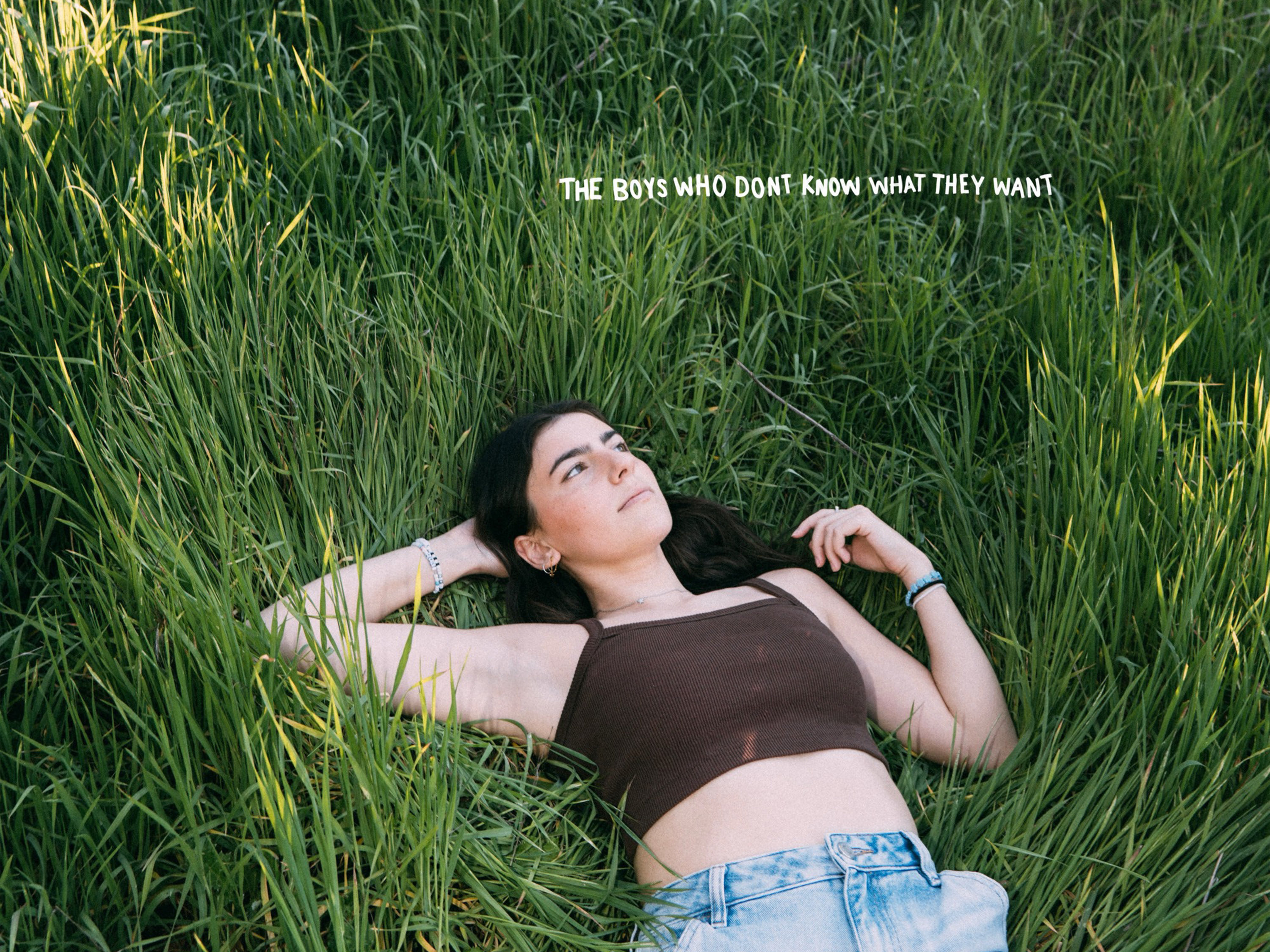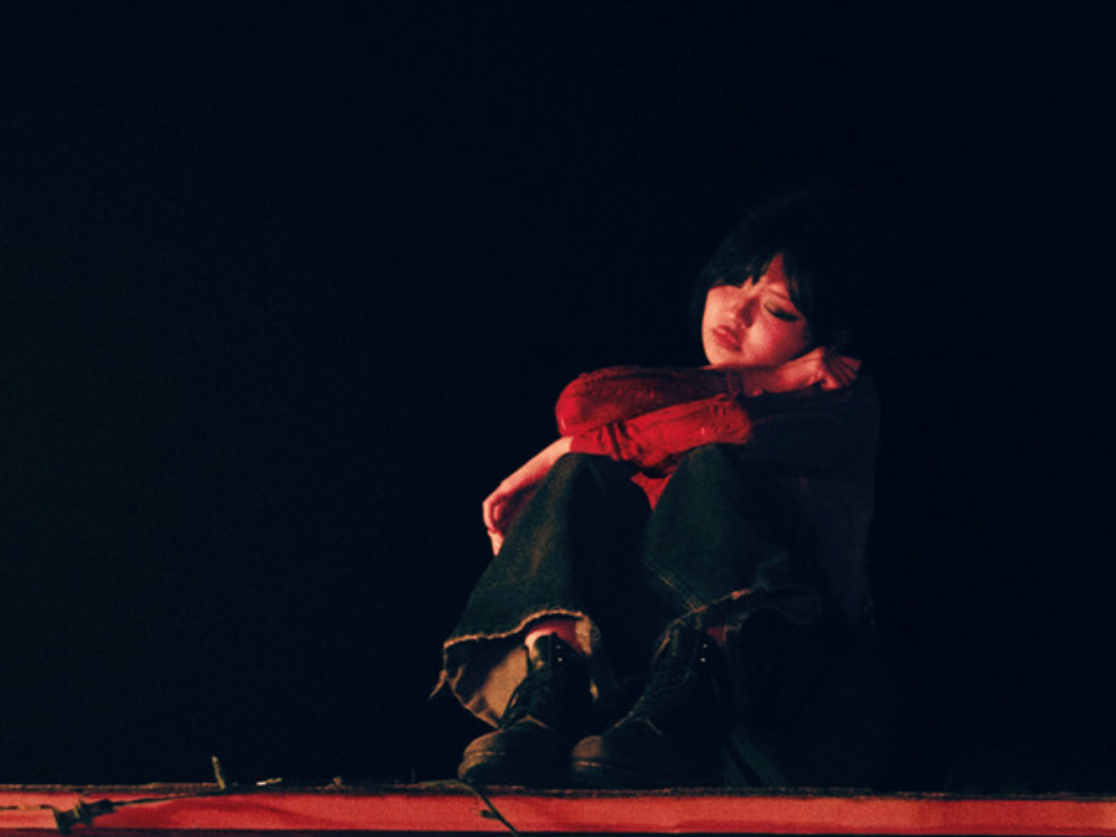JUNE 20
YUNGBLUD'S "IDOLS": A JOURNEY OF SELF-RECLAMATION
BY LUNA CARDOSO
YUNGBLUD's fourth studio album, Idols, marks a clear turning point. Rather than being a tribute to the figures who shaped him, it's a rejection of their shadows in favour of something far more personal. "It's not an homage to my idols; it's me turning away from them," he explains. That act of defiance yields a sprawling, emotionally raw, and sonically expansive album that prioritises self-reclamation over imitation. "It's a journey of self-reclamation, a goodbye to the past and how you may have known or perceived me before, and a hello to the future and where I'm going," he says. IDOLS takes listeners on a journey through identity, alienation, love, grief, and, eventually, agency.
The album opens with Hello Heaven, Hello, a two-part introduction that outlines the album's core themes. Hello is a distorted cry into the void, filled with uncertainty, existential self-reflection ("Are you still scared of dying? Scared of them finding out that you don't know who you are?"), and a desperate yearning to feel alive. Its repetition is hypnotic, obsessive, and deliberately disorienting. Then Heaven turns that inner chaos outward. Set against a backdrop of thumping drums and bold refrains, it takes the form of a spiritual reckoning, addressing the wounds inflicted by others. ("They'd kick me in the mud, and they told me, 'That's the price you pay'") and the unrealistic expectations of growing up "wrong." Together, these two movements portray Idols not only as an album but also as an emotional threshold—crossing from uncertainty to clarity, chaos to intent, with YUNGBLUD asserting, "Dont give a damn about what they said."
Idols Pt. I is a continuation of the album's exploration, reflecting on gender expression, societal shame, and lost childhood innocence. The chorus, "Living like idols if we want to be," is a challenge to the systems that define fame. This track was recorded at a "haunted old Tetley's brewery" in Leeds, with YUNGBLUD even mentioning an "unexplainable" ghost sound in the audio, adding an uncanny authenticity to its exploration of past influences and contemporary defiance.
That playfulness continues in Lovesick Lullaby, a song that starts as a carefree party anthem before revealing its deeper emotional turmoil. This song is a lesson in sonic misdirection, exploring misfires in love, judgement, and self-perception, all wrapped in addictive hooks and a woozy narrative that mixes reality and fantasy. YUNGBLUD incorporates his own cultural references not as mimicry but as part of his fluid identity, where eyeliner, chaos, and pop hooks coexist, setting the album's vow to "twist and turn through multiple genres because that's who I am."
From here, the album grows heavier, not just thematically but emotionally. Zombie is a highlight, written in response to his grandma's serious injury and trauma, but eventually evolving into a broader reflection on deterioration, fear, and emotional retreat. It's intimate and hushed in pain, with a vulnerable vocal delivery that feels ready to collapse at any minute, capturing the "fear of becoming a burden or an embarrassment." Meanwhile, The Greatest Parade tackles a different kind of loss: the emotional weight of being misunderstood or discarded, especially by the public eye. YUNGBLUD admitted that this was "one of the emotionally hardest songs to write," reflecting on people who "outgrew YUNGBLUD or are mean on the internet." It's loud and euphoric on the outside but aching on the inside, packed with existential doubt and a desperate yearning for meaning among the chaos of visibility.
Change, the album's midpoint, is one of its most significant moments. YUNGBLUD has stated that if the album had not been called Idols, it would have been titled "Change," emphasising how central this track is to the project’s core. This song is about confronting external pressures, internal shame, and the understanding that something fundamental has shifted. It's jagged, unpredictable, and emotionally raw—a conversation with oneself that was pulled from the brink of a breakdown and transformed into a creative awakening. His long time collaborator, Mati Schwartz, played a significant role, pursuing him with "No, you can do better than that," and forcing him to truly "face myself and realise that I was not right."
That emotional volatility carries into the album's second half, with Monday Murder offering a harsh commentary on apathy and disconnection. "It's about everything going on in the world and the lack of unity and coexistence," he says, emphasising how "we'd rather judge than accept, and we'd rather fight than live in peace." It juxtaposes war imagery with a plea for empathy and coexistence, urging listeners to not "watch the world go by instead of looking at each other and celebrating our differences." Ghosts then takes a cinematic turn, shifting between epic and ode. Framed by reflections on mortality and resilience,"realising your own mortality on the banks of the River Thames after a night out at six in the morning." It becomes an anthem of both grief and defiance, a reminder of how pain can become power when we rise above it.
Fire shifts gears again, this time exploring sexuality and adrenaline through a lens of physicality and primal instinct. "I was really wanting to explore my sexual side," YUNGBLUD explains, linking it to "sex and aggression and that feeling you get when you're about to be punched in the face or about to be taken into a bedroom." It's explosive, provocative, and purposely visceral, balancing on the line between intimacy and violence and the "animalistic humanity: the fundamentals of why we feel anything at all." The same turbulence seeps into War, a track that wrestles with internalised shame and the conflict between self-expression and societal expectation. YUNGBLUD explores being told he is "too much" or that others wish he had "stayed in one place," as well as the ache of being forgotten or misunderstood by those who once claimed to understand him. "I wish I could be something else, but I just can't," he admits, highlight the "dichotomy within me to be what the world wants me to be."
brings the album full circle—returning to its central message. "This is where the protagonist—you, me—this is where we start to win," YUNGBLUD explains. The track acts as a mirror, reminding us that actual growth comes not from becoming someone else but from facing oneself entirely and asserting, "You have to be the idol in your own life. Stop giving other people the credit." That realisation follows naturally into Supermoon, the album's quiet, very intimate conclusion. Notably, it's the only song on Idols that YUNGBLUD did not write; it was written by long-time collaborator Mati Schwartz, who kept it a secret for five years. YUNGBLUD responds, "I don't believe a human being on this planet has understood me more than that man." It's a beautiful, aching final track on an album that's as much about survival as it is about rediscovery, with the heartbreaking refrain: "So don't be sad."
With Idols, YUNGBLUD delivers his most cohesive and emotionally powerful project ever. It's an album that defies categorisation, leaping between genres, moods, and memories with the reckless honesty that defines his work, but with greater clarity and control. Idols is, more than anything, about becoming. It's about choosing yourself, even when you feel like you've lost the plot—about being your own reference point in a world that is constantly trying to redefine you. This album is a reminder that no one else can be the hero of your story—not even your idols. Instead, Idols empowers listeners to forge their own path, making it a vital and resonant statement in YUNGBLUD's evolving discography.
